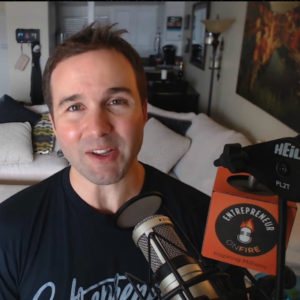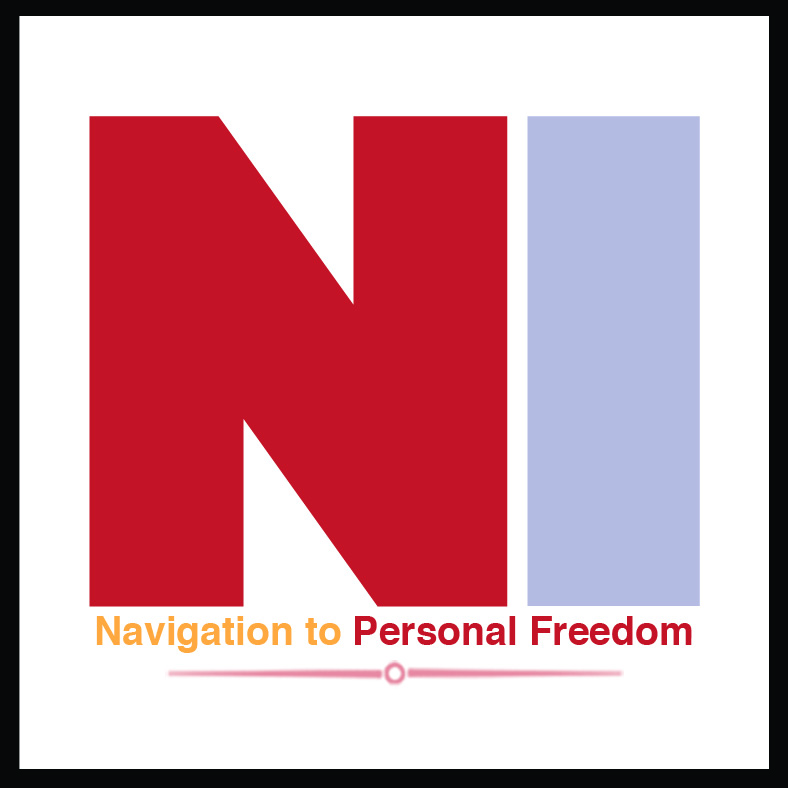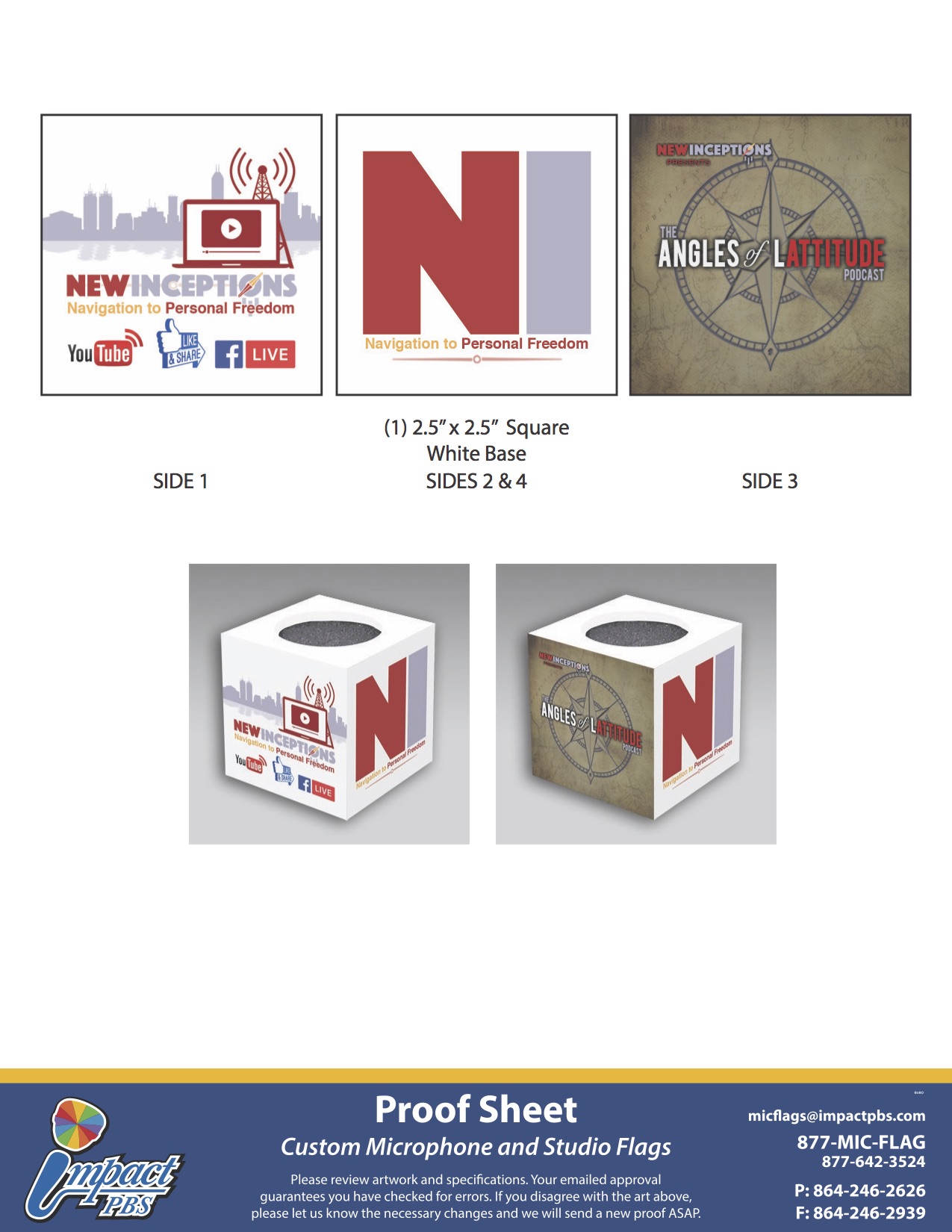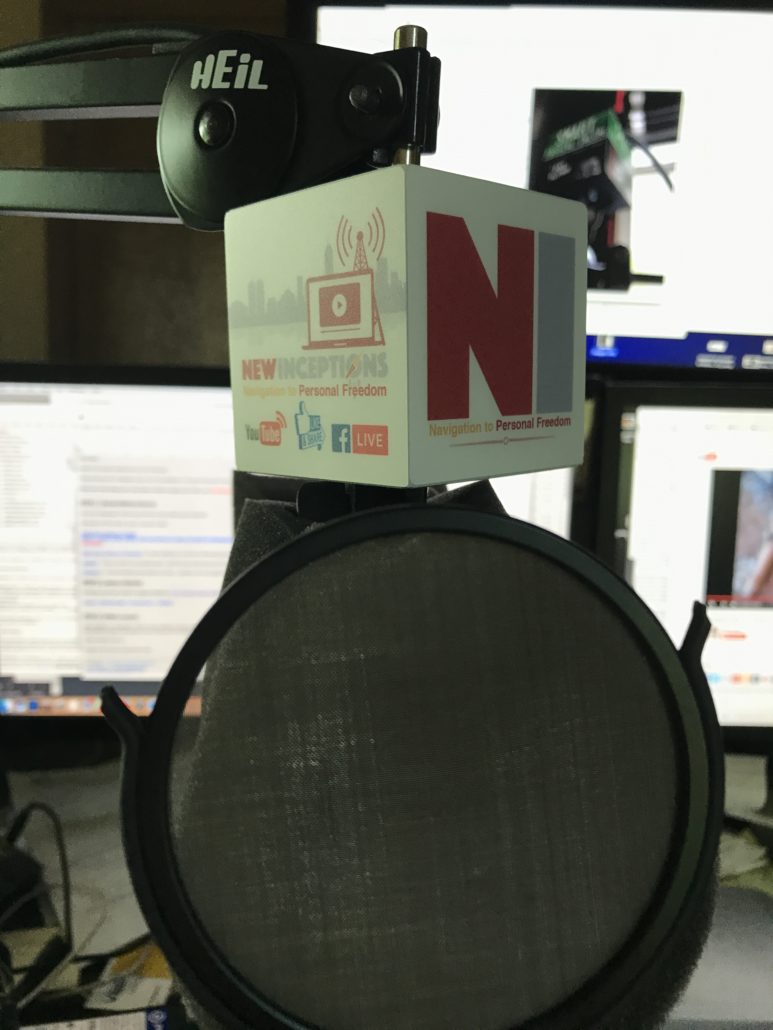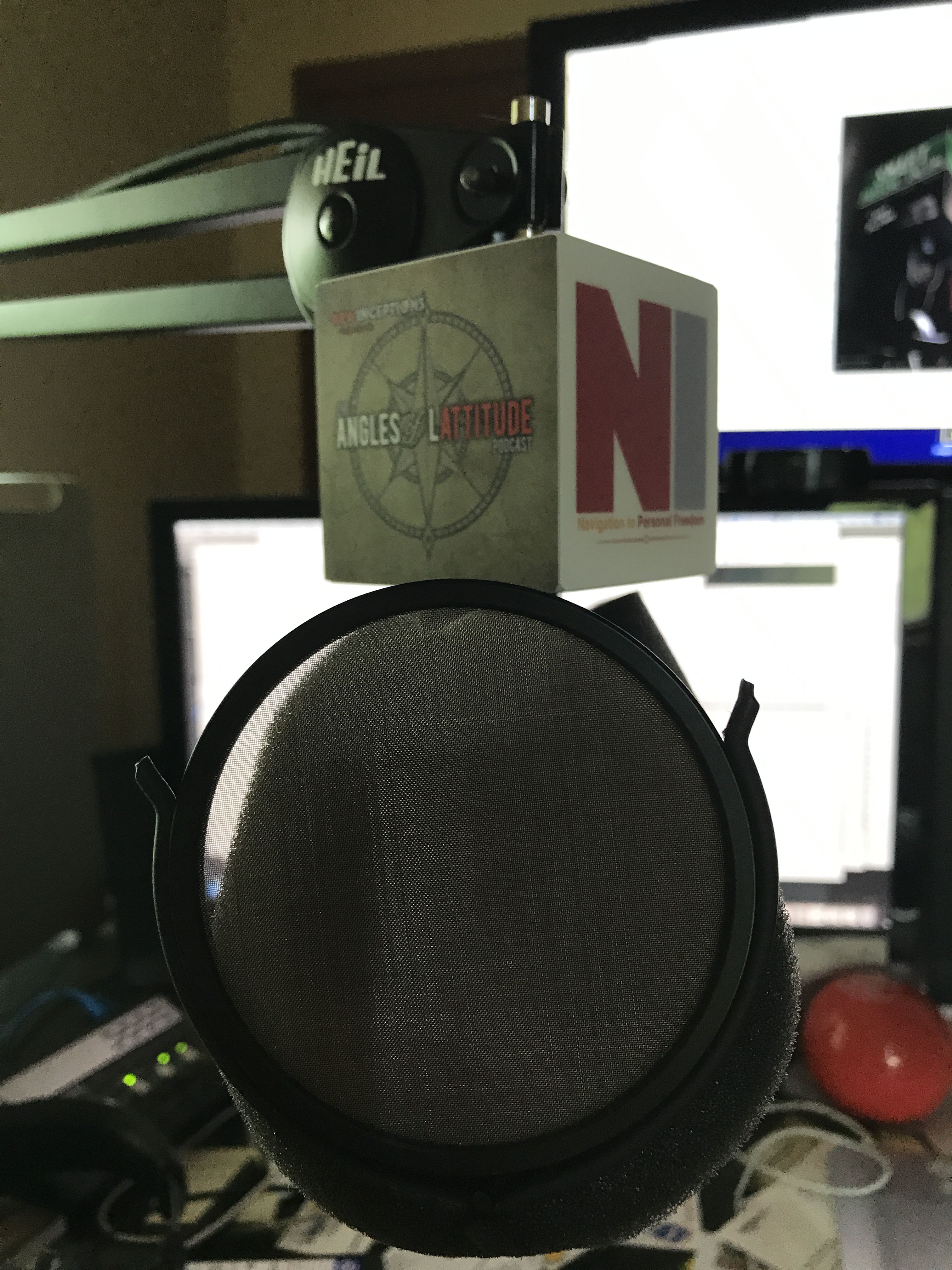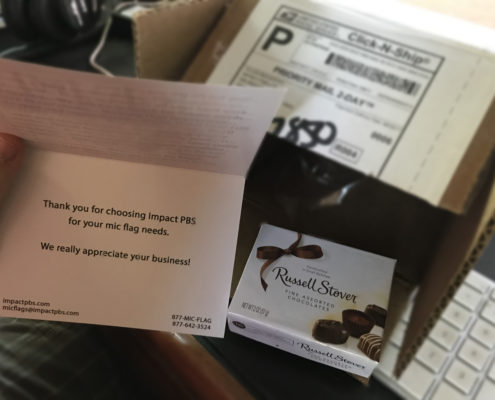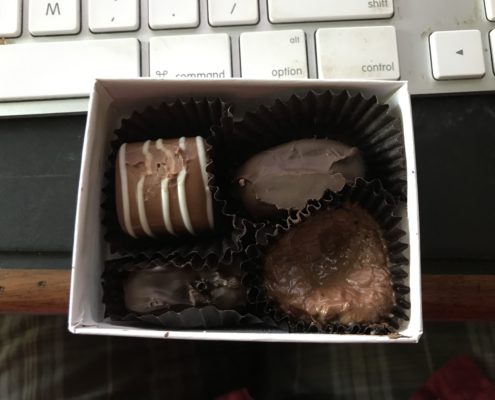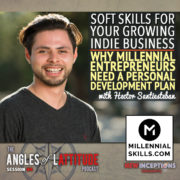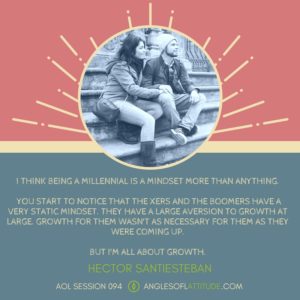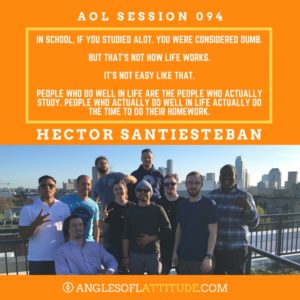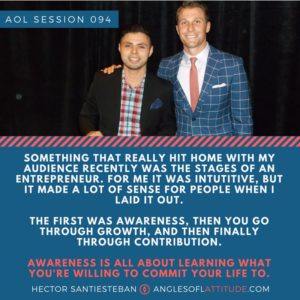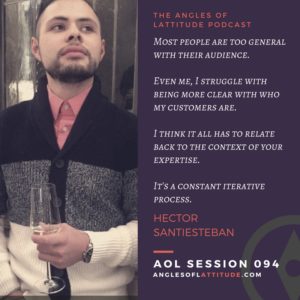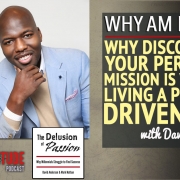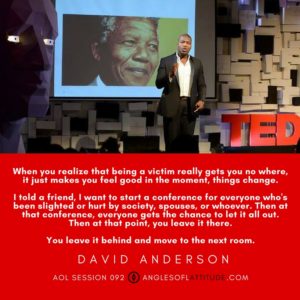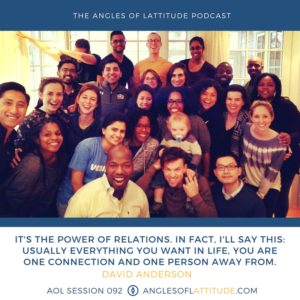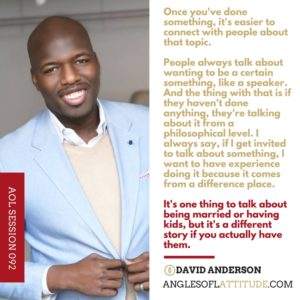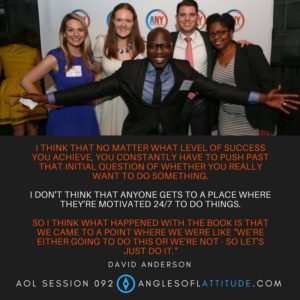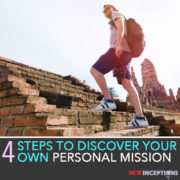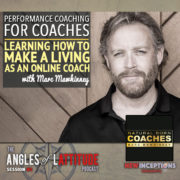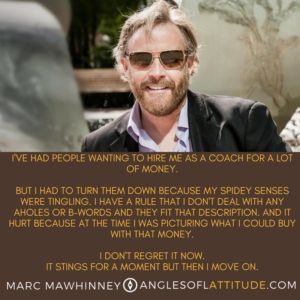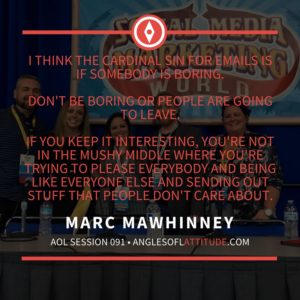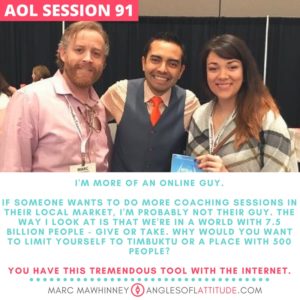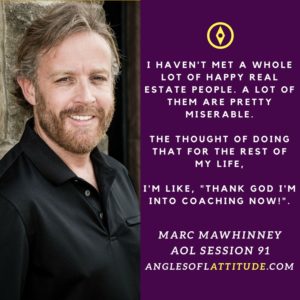How to Get a Microphone Logo: My Mic Flag Design Writeup
In observance of the 4th of July, I wanted to keep today’s post relatively short. I know a lot of you are busy and doing fun things today. Hanging out with friends and loved ones.
You might call this an ironic post as well, because on a day where it’s the “in” day to be patriotic here in the states, I’m talking about a flag.
But – it’s not that kind of flag. It’s a mic flag.
What is a mic flag?
Keep reading.
The Story of the Mic Flag
As you guys know, I wrote up a full writeup of all the software and hardware that I use to make my podcast back in three separate posts. My goal with those posts was to give you an “inexpensive” way of starting your own show.
I only spent money where I knew it was important to do so. The biggest purchases I made was the software (Logic Pro X) and my mic – an Audio Technica at875r. For the most part, everything else was done with price in mind.
I also tried to use Pat’s tutorial as supplemental info in my tutorial so that I didn’t have to create the wheel. I figure his is such a great tutorial – and it’s what I started with – why change it?
Here are those posts:
There was one thing that I was missing, however.
And that was a mic flag.
What is a Mic Flag?
If the term mic flag is unfamiliar to you, you’re not the only one. I didn’t know what it was called either.
It’s the little thing that sits either on a mic itself. By itself, it looks like this:
However, you might be more used to it the way that Pat and John Lee Dumas use it:
Well, considering I don’t have a handheld mic, I figured I’d opt for the “above the mic” location.
But where to get it?
Getting a Mic Flag
So, 80+ episodes into the AoL Podcast, I finally decided to get one. Why? Because I’m tired of not doing Facebook LIVE events because I don’t feel ready. This was just one more thing on that list to do before I felt ready.
So where was I going to secure one similar to what Pat and JLD used?
Well, let’s Ask Pat!.
So on one of his recent Ask Pat! LIVE shows, I asked him who the maker of his mic flag was.
His answer: Impact PBS.
Choosing the Right Size:
Getting a mic flag through Impact PBS is pretty amazing. Their customer service “liaison” (at least that’s what I’d call her), Ellen, is probably one of the main reasons why people recommend them. She was very careful and precise in making sure I got exactly what I wanted.
We emailed a few times back and forth about the sizes of flag I might need. In fact, she even dug into their archive to find out what size Pat had – who he’s had his flag since 2012 – if not earlier!
We ended up opting for the 2.5” x 2.5” after I emailed Pat about how much clearance he has on his “mic mount bolt” and the bottom. Which he ended up sending me this image to actually show me:
The great thing about asking Pat something is that you don’t have to ask him through his podcast. You can simply just email him. He seems to almost always respond. Maybe because I’ve emailed him off and on throughout the years. Maybe I have my own inbox?? Haha – one can believe, right?
Designing the Flag:
Anyway, once I chose the size of the mic flag, I had to create the design for it. If you’ve ever designed business cards, this is a very similar process. You get a template, work on it in your preferred image editor (mine’s Photoshop) and upload it to the site.
In this case, Ellen emailed me the template which I used to make three different sides. 1 of which would be used twice.
Once I was done, I resubmitted the Photoshop file back to Ellen through Dropbox. She removed the black lines and sent me a proof of what it was going to look like.
After a few consent forms and paying just under $70 (with shipping), my flag was being made!
Receiving the Mic Flag:
It wasn’t even a week later by the time they were made and I got my package in the mail. I think I ordered on Monday the 26th and got them on the 29th? Pretty amazing turnaround, I have to say!
Anyhow – here’s the final result:
Oh, and I also received a thank you letter and some chocolates! How awesome!
Considering it was the last of June, they turned out pretty good! 😉
It all tastes the same, right?
Action Step – Getting a Mic Flag?:
If you want a great product to add brand recognition to your videos (live or otherwise) without you having to mention who you are, mic flags are the way to do it. They just give a more professional effect!
I can’t be any happier than I am with the final product.
Check out Impact PBS if you want a great mic flag (high quality plastic!) that you’ll have for years to come!
P.S. In case you noticed, I have opted to get a Heil PL-2T mic boom since my original podcast posts. I was able to score it for essentially half the price from eBay. If you can find it – go for it. I love mine.




